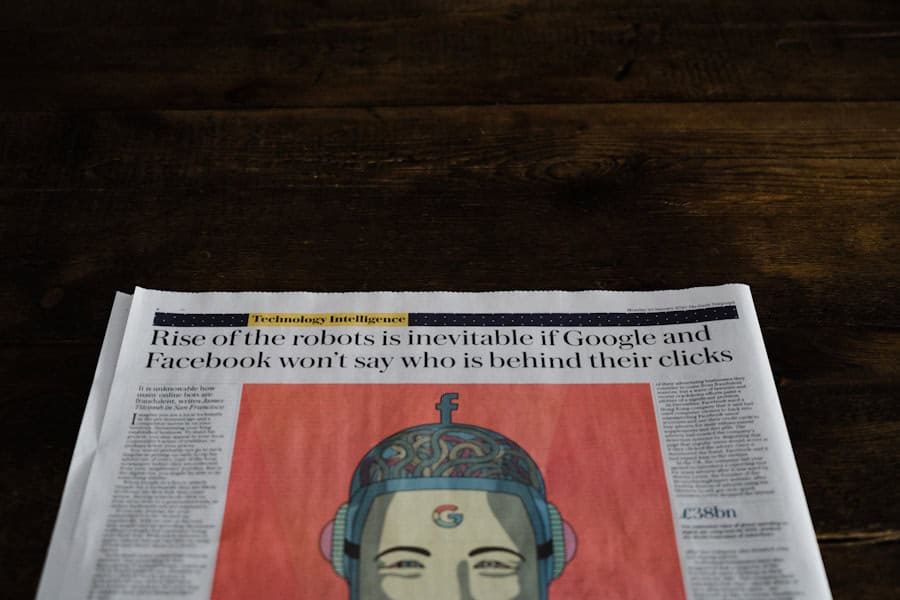The integration of artificial intelligence (AI) into biotechnology supply chains represents a transformative shift in how the industry operates. Biotechnology, which encompasses a wide range of applications from pharmaceuticals to agricultural products, relies heavily on complex supply chains that must navigate regulatory hurdles, manage sensitive biological materials, and ensure timely delivery of products. The advent of AI technologies has introduced new methodologies for optimizing these supply chains, enhancing efficiency, and improving decision-making processes.
By leveraging machine learning algorithms, predictive analytics, and data-driven insights, biotech companies can streamline operations, reduce costs, and ultimately deliver better products to market. AI’s role in biotech supply chains is multifaceted, encompassing everything from demand forecasting to inventory management and logistics optimization. The ability to analyze vast amounts of data in real-time allows companies to respond swiftly to market changes and consumer needs.
For instance, AI can predict fluctuations in demand for specific biopharmaceuticals based on historical data and emerging health trends, enabling companies to adjust their production schedules accordingly. This level of responsiveness is crucial in an industry where the stakes are high, and delays can have significant consequences for patient care and public health.
Key Takeaways
- AI is revolutionizing the biotech supply chain industry by optimizing processes and improving efficiency.
- Managing biotech supply chains for global distribution comes with challenges such as regulatory compliance and complex logistics.
- AI brings benefits to managing biotech supply chains including predictive analytics, real-time monitoring, and inventory optimization.
- The implementation of AI in biotech supply chains requires investment in technology, data infrastructure, and employee training.
- Case studies show successful AI integration in biotech supply chains, resulting in cost savings, improved accuracy, and better decision-making.
Challenges in Managing Biotech Supply Chains for Global Distribution
Managing biotech supply chains for global distribution presents a unique set of challenges that can complicate operations. One of the primary hurdles is the regulatory landscape, which varies significantly across different countries. Each region has its own set of regulations governing the production, distribution, and sale of biotech products, necessitating a thorough understanding of compliance requirements.
This complexity can lead to delays in product launches and increased costs as companies navigate the intricate web of international regulations. Another significant challenge is the inherent sensitivity of biological materials. Biotech products often require specific storage conditions and handling procedures to maintain their efficacy and safety.
For example, many vaccines must be kept at ultra-low temperatures during transport to prevent degradation. Ensuring that these conditions are met throughout the supply chain is critical but can be logistically challenging, especially when dealing with global distribution networks. Any lapse in temperature control or mishandling can result in product loss, financial repercussions, and potential harm to patients.
Benefits of AI in Managing Biotech Supply Chains

The application of AI in managing biotech supply chains offers numerous benefits that can address many of the challenges faced by the industry. One of the most significant advantages is enhanced forecasting capabilities. Traditional methods of demand forecasting often rely on historical sales data and market trends, which can be insufficient in a rapidly changing environment.
AI algorithms can analyze a broader range of variables, including social media sentiment, epidemiological data, and even weather patterns, to generate more accurate predictions. This improved forecasting allows companies to optimize inventory levels, reducing the risk of stockouts or overproduction. Additionally, AI can significantly improve operational efficiency by automating routine tasks and streamlining processes.
For instance, AI-powered systems can manage inventory by tracking stock levels in real-time and automatically placing orders when supplies run low. This not only reduces the administrative burden on staff but also minimizes human error, which can lead to costly mistakes. Furthermore, AI can enhance logistics management by optimizing shipping routes and schedules based on real-time traffic data and weather conditions, ensuring timely delivery of products while minimizing transportation costs.
Implementation of AI in Biotech Supply Chains
Implementing AI in biotech supply chains requires a strategic approach that encompasses technology adoption, workforce training, and process reengineering. The first step involves selecting the right AI tools that align with the company’s specific needs. This could range from machine learning platforms for predictive analytics to robotic process automation (RPA) for streamlining administrative tasks.
Companies must also invest in robust data infrastructure to support AI initiatives, ensuring that data is collected, stored, and processed efficiently. Training the workforce is another critical aspect of successful AI implementation. Employees must be equipped with the skills necessary to work alongside AI technologies effectively.
This may involve upskilling existing staff or hiring new talent with expertise in data science and machine learning. Moreover, fostering a culture that embraces innovation and change is essential for overcoming resistance to new technologies. Companies should encourage collaboration between IT teams and operational staff to ensure that AI solutions are tailored to meet real-world challenges within the supply chain.
Case Studies of Successful AI Integration in Biotech Supply Chains
Several biotech companies have successfully integrated AI into their supply chain operations, demonstrating the technology’s potential to drive efficiency and innovation. One notable example is Moderna, a biotechnology company known for its mRNA-based vaccines. During the COVID-19 pandemic, Moderna utilized AI algorithms to optimize its supply chain processes rapidly.
Another compelling case is that of Amgen, a leading biopharmaceutical company that has embraced AI for demand forecasting and inventory management. Amgen implemented machine learning models that analyze historical sales data alongside external factors such as market trends and competitor activities.
The company’s ability to respond quickly to changes in demand has positioned it favorably within a competitive market.
Future Trends in AI for Biotech Supply Chains

As technology continues to evolve, several trends are emerging that will shape the future of AI in biotech supply chains. One such trend is the increasing use of blockchain technology in conjunction with AI to enhance transparency and traceability within supply chains. Blockchain can provide an immutable record of transactions and product movements, while AI can analyze this data to identify inefficiencies or potential risks.
This combination could lead to more secure and reliable supply chains, particularly important in an industry where product integrity is paramount. Another trend is the growing emphasis on sustainability within biotech supply chains. As environmental concerns become more pressing, companies are seeking ways to reduce their carbon footprint and minimize waste.
AI can play a crucial role in this effort by optimizing resource allocation and identifying opportunities for more sustainable practices. For instance, AI algorithms can analyze energy consumption patterns within manufacturing processes and suggest adjustments that lead to lower energy use without compromising productivity.
Ethical Considerations in AI for Biotech Supply Chains
The integration of AI into biotech supply chains raises several ethical considerations that must be addressed to ensure responsible use of technology. One primary concern is data privacy and security. Biotech companies often handle sensitive patient information and proprietary research data; thus, safeguarding this information is critical.
Implementing robust cybersecurity measures and adhering to data protection regulations are essential steps in mitigating risks associated with data breaches. Additionally, there are ethical implications related to algorithmic bias in AI systems. If not carefully designed and monitored, AI algorithms may inadvertently perpetuate existing biases present in historical data or decision-making processes.
This could lead to inequitable outcomes in areas such as drug distribution or access to healthcare resources. To combat this issue, companies must prioritize fairness and transparency in their AI models by regularly auditing algorithms for bias and ensuring diverse datasets are used during training.
The Impact of AI on Managing Biotech Supply Chains
The impact of AI on managing biotech supply chains is profound and far-reaching. By addressing challenges such as regulatory compliance, inventory management, and logistics optimization through advanced technologies, biotech companies can enhance their operational efficiency while delivering high-quality products to market more swiftly. The successful integration of AI not only improves forecasting accuracy but also fosters innovation within the industry.
As we look toward the future, it is clear that the role of AI will continue to expand within biotech supply chains. Emerging trends such as blockchain integration and sustainability initiatives will further shape how companies operate in an increasingly complex global landscape. However, it is imperative that ethical considerations remain at the forefront of these advancements to ensure that technology serves as a force for good within the industry.
The journey toward fully realizing the potential of AI in biotech supply chains is ongoing; however, its promise for enhancing efficiency and improving patient outcomes is undeniable.
In a recent article on The Best Tech Products 2023, the importance of incorporating cutting-edge technology in various industries, including biotech supply chains, is highlighted. As AI continues to revolutionize the way businesses operate, it is crucial for biotech companies to leverage this technology to streamline their supply chain management processes for global distribution. By implementing AI-driven solutions, companies can optimize inventory management, enhance forecasting accuracy, and improve overall efficiency in delivering life-saving biotech products to customers worldwide.
FAQs
What is AI?
AI, or artificial intelligence, refers to the simulation of human intelligence in machines that are programmed to think and act like humans. This includes tasks such as learning, problem-solving, and decision-making.
How is AI used in managing biotech supply chains for global distribution?
AI is used in managing biotech supply chains for global distribution by optimizing inventory management, predicting demand, improving logistics and transportation, and enhancing overall supply chain efficiency.
What are the benefits of using AI in managing biotech supply chains for global distribution?
The benefits of using AI in managing biotech supply chains for global distribution include improved accuracy in demand forecasting, reduced operational costs, enhanced decision-making, increased efficiency, and better risk management.
Are there any challenges in implementing AI in managing biotech supply chains for global distribution?
Some challenges in implementing AI in managing biotech supply chains for global distribution include data privacy and security concerns, the need for skilled personnel to manage AI systems, and the potential for job displacement due to automation.

